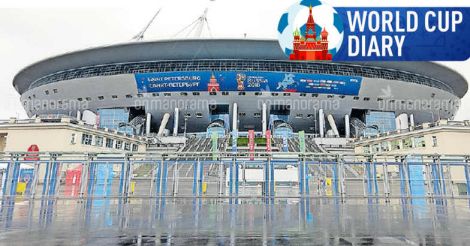Saint Petersburg Stadium, also referred to as Zenit Arena or Krestovsky Stadium, is an architectural marvel, noted for its innovative design and state-of-the-art facilities.
Constructed at a whopping cost of $1.1 billion (around Rs 7,500 crore), it is considered one of the most expensive stadiums ever built. Remember, India's Mangalyaan mission cost just about Rs 450 crore or $73 million!
The stunning arena is rightfully the epitome of architectural grandeur and design prowess, but the scandals that have plagued the project since its inception have also made it a symbol of poor planning and rampant corruption in Vladimir Putin’s Russia.
Let's look on the bright side first. It is a retractable roof stadium in the western portion of Krestovsky Island in Saint Petersburg, which is home to FC Zenit Saint Petersburg, one of the top-flight clubs in the country. The stadium was built on the location where the former Kirov Stadium used to stand before it was demolished.
The new facility was designed by Japanese architect Kisho Kurokawa, and as per his creative vision, the exterior of the stadium was built to resemble a spaceship. The most striking aspect of the venue is its extendable roof and the retractable pitch.
The 68,000-seater stadium was opened almost a decade behind schedule and cost over five times the original estimated price. St. Petersburg's administration was in charge of the construction of the stadium. The construction activities were originally due to be funded by Gazprom, but the oil and gas company exited the project in 2009. Following which the lead contractor too abandoned the project midway.
The construction works picked up pace only after FIFA gave an ultimatum to the city administration. The stadium, which was initially planned to be completed in 2009, was finally opened in May 2017, and hosted the opening match and final of the 2017 FIFA Confederations Cup.
Read more: FIFA World Cup

























 The new facility was designed by Japanese architect Kisho Kurokawa, and as per his creative vision, the exterior of the stadium was built to resemble a spaceship.
The new facility was designed by Japanese architect Kisho Kurokawa, and as per his creative vision, the exterior of the stadium was built to resemble a spaceship.